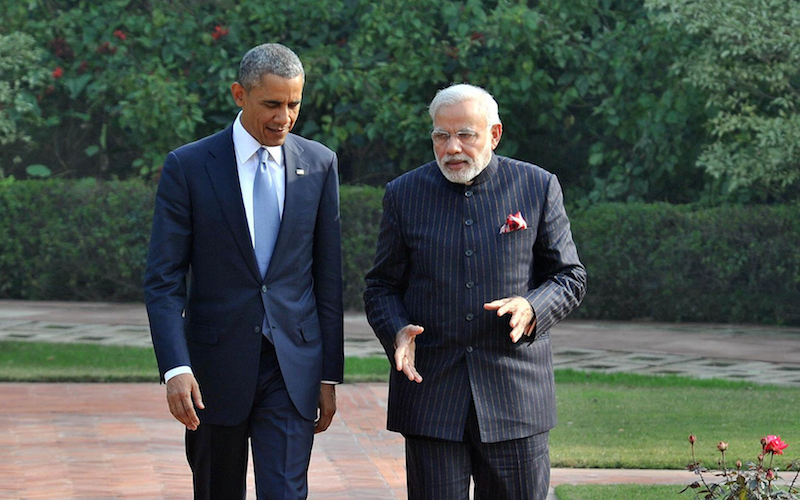
Narendra Modi at 365
Narendra Modi’s government completed its first year in office in May. Before taking over as prime minister, Modi was Chief Minister of Gujarat and was not known for taking any interest in foreign affairs. That changed once Modi became prime minister.
India’s immediate neighborhood of South Asia has remained a clear area of priority for this government. Modi invited leaders of the SAARC nations, a regional organization in South Asia, for his swearing-in ceremony, which was unprecedented. Then he went on to visit Bhutan, Nepal, Sri Lanka and Myanmar. Modi’s government, with its majority in parliament, also managed to pass the stalled land boundary agreement with Bangladesh, one of the most important achievements of this government. But Modi skipped a visit to the Maldives, a tiny island nation in the northern Indian Ocean owing to its troubled political scenario. India provided quick humanitarian assistance to Nepal during the recent earthquake and supplied Maldives with fresh water in December. These acts have helped in generating goodwill and also in highlighting India’s capacity to act when needed.
Modi was also eager to engage Asian powers in India’s extended neighborhood like Japan, China, South Korea and Australia. Along with these states, he had visited Indian Ocean littoral states having large Indian diaspora like Mauritius, Seychelles and Fiji. In addition to that, he became the first Indian prime minister to visit Mongolia, a country trapped in between China and Russia. Modi has renamed India’s policy of ‘Look East’ as ‘Act East’ and is building ties with India’s South-East Asian neighbors.
Despite being denied a visa to enter the United States before his election, Modi has embraced Washington. Modi went as far as to invite President Obama as his for India’s Republic Day ceremony back in January, signaling highest level of priority Indian government bestows upon a state.
Modi was also eager to engage Western powers like Canada, Germany and France. Apart from his high voltage visits abroad, Modi has hosted the leaders of China, Russia, Afghanistan, Sri Lanka and Vietnam among others. In the coming days, Modi is slated to visit Bangladesh and several Central Asian states.
While highlighting many good points about the first year in office, some neglected areas could also be pointed out. Modi had not engaged any other BRICS (Brazil, Russia, India, China and South Africa) nations other than China, although the BRICS nations have set up a bank (known as New Development Bank) this year and an Indian has been appointed its first chairman. Modi had also not visited any state in West Asia, the most troubled region in India’s neighborhood. Modi’s government decided to purchase 36 Rafael fighter aircraft from France, the most significant military purchase of this government. But details of the deal (costs, date of delivery, fate of earlier contract etc.) are still not clear. Modi has also not been able to engage with Pakistan effectively or spell out any clear policy with its neighbor.
In the case of multilateral engagement, Modi’s government faced a challenge in securing a deal from the World Trade Organization (WTO) on the continuation of India’s food security act. Now, similar challenges await in the climate negotiations later this year and Modi’s ability to steer India will be tested there. It was unusual but also symbolic that during Modi’s visit to China, both countries issued a joint statement on climate change.
It is imperative for any government to deliver on its promises made abroad in order to remain credible. Domestic requirements also sometimes warrant specific foreign policy actions. Modi’s government is facing this challenge of delivering at home. Modi’s visits abroad were an extravagant affair and perhaps generated more heat than light. It is also putting him in a trap where his own image and pressure to show results would work against him. It is already happening domestically. Modi’s government had enjoyed an extended honeymoon period in the area of foreign policy. Managing expectations will be a real test for this government.

